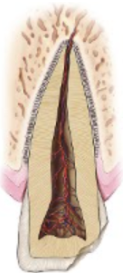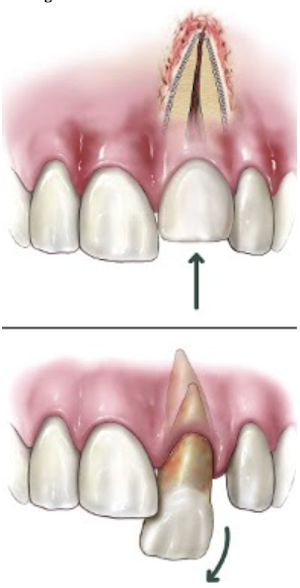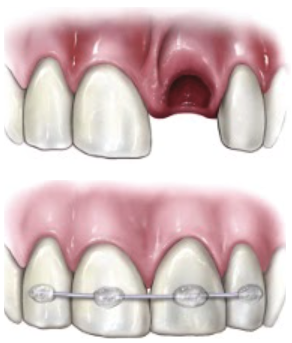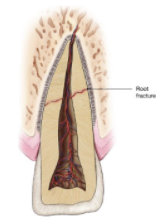Traumatic Injuries
The most common cause of traumatic dental injuries is an accident or sports injury. Traumatic dental injuries can be minor (chipped tooth) or major (dislodged tooth or knocked out tooth). It is not uncommon for the multiple teeth to be involved when a traumatic injury is sustained. Treatment depends on the type, location and severity of each injury. Regardless of the extent of the injury, your tooth requires immediate examination by a dentist or an endodontist.
Endodontists are dentists who specialize in treating teeth that had traumatic dental injuries. With their advanced skills, techniques and technologies they often can save the teeth involved in traumatic dental injuries.. If you have a chipped tooth, dislocated tooth or knocked out tooth find an endodontist near you right away. Most endodontists accommodate emergency patients and prompt care will provide better long term results.
Can my cracked tooth be saved with treatment?
A crack on the tooth won’t heal but it can be eliminated in some cases while preparing the tooth for a crown or filling as long as the crack is not deep. In most cases cracked teeth can be saved with root canal treatment and or crown. In some cases despite treatment the cracks may continue to progress further and lead to failure. If treatment fails with cracked teeth then usually the tooth needs extraction.
How teeth involved in traumatic injuries are treated?
 Chipped tooth is one of the most common forms of traumatic dental injury. Most chipped teeth can be easily repaired by your dentist by restoring the missing portion of your tooth with a tooth colored bonded resin filling material. A root canal treatment is necessary if the pulp is exposed with the chipped tooth. Injuries to the back teeth such as fractured cusps and cracked teeth require root canal treatment and crown to restore the function. If the cracks extend to the root surface or if the tooth is split then these teeth may require extraction.
Chipped tooth is one of the most common forms of traumatic dental injury. Most chipped teeth can be easily repaired by your dentist by restoring the missing portion of your tooth with a tooth colored bonded resin filling material. A root canal treatment is necessary if the pulp is exposed with the chipped tooth. Injuries to the back teeth such as fractured cusps and cracked teeth require root canal treatment and crown to restore the function. If the cracks extend to the root surface or if the tooth is split then these teeth may require extraction. In the case of a traumatic injury, a tooth may be pushed sideways, into, or out of its socket. Root canal treatment is usually needed for permanent teeth that have been dislodged and should be started a few days after the injury.
Children ages twelve and under may not need root canal treatment since their teeth are still developing. The pulp tissue in the children's teeth may heal itself and the tooth may continue to mature normally. We may monitor the healing process carefully and intervene immediately if any unfavorable changes appear. If any unfavorable changes appear then the treatment may be initiated which usually requires multiple appointments.
In the case of a traumatic injury, a tooth may be pushed sideways, into, or out of its socket. Root canal treatment is usually needed for permanent teeth that have been dislodged and should be started a few days after the injury.
Children ages twelve and under may not need root canal treatment since their teeth are still developing. The pulp tissue in the children's teeth may heal itself and the tooth may continue to mature normally. We may monitor the healing process carefully and intervene immediately if any unfavorable changes appear. If any unfavorable changes appear then the treatment may be initiated which usually requires multiple appointments.
 It is very important to see your dentist or endodontist as soon as possible (preferably within 30min) if one of your teeth is completely knocked out of your mouth.
For the best long term results here are few simple things you can do if your tooth is knocked out.
It is very important to see your dentist or endodontist as soon as possible (preferably within 30min) if one of your teeth is completely knocked out of your mouth.
For the best long term results here are few simple things you can do if your tooth is knocked out.
- Locate the tooth and handle it by holding the crown of the tooth
- If the tooth is dirty rinse it gently with water
- Avoid scrubbing the root surface and avoid using soap to clean the tooth
- If you can, reposition the tooth in the socket immediately
- If you can’t reposition the tooth in the socket you can hold it in the mouth next to the cheek
- Never let the tooth surface become dry. Moisture is what keeps the cells on the root surface alive
- Seek emergency dental treatment from your dentist or endodontist
- The long term success depends on how long the tooth was kept outside the mouth and whether it’s surface was kept moist or not. A tooth that stays out of the mouth for more than 30 minutes and is kept dry will develop complications within a few months after repositioning and will result in tooth loss
 A traumatic Injury to your tooth may cause a horizontal root fracture where the fracture line extends from one side of the root to the other. Your tooth may or may not be loose depending on the location of the fracture. If your tooth is loose a stabilizing splint may be necessary for a few weeks. The long term prognosis depends on the location of the fracture.
A traumatic Injury to your tooth may cause a horizontal root fracture where the fracture line extends from one side of the root to the other. Your tooth may or may not be loose depending on the location of the fracture. If your tooth is loose a stabilizing splint may be necessary for a few weeks. The long term prognosis depends on the location of the fracture.

